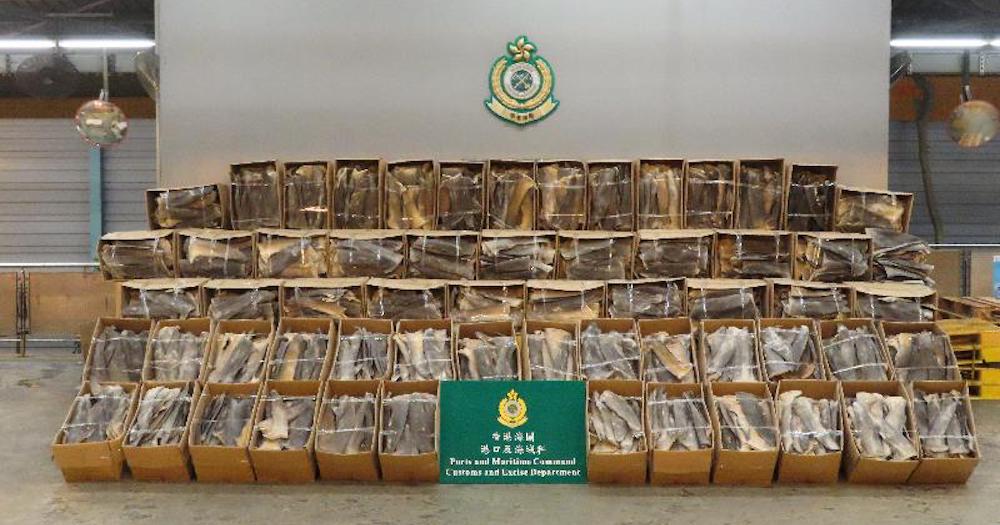Hong Kong Customs recently made two seizures of a total of about 26,000 tonnes of dried shark fins.
The two shipments of shark fins were seized on April 28 and May 4 respectively at the Kwai Chung Customhouse Cargo Examination Compound, according to a press release on Wednesday (May 6).
The authorities in Hong Kong mentioned that the market value of the two shipments amounted to about H$8.6 million (S$1.57 million).
Two largest shark fin seizures in Hong Kong
According to the authorities, about 13 tonnes of shark fins from endangered species were seized in each shipment.
It is an offence in Hong Kong to import or export an endangered species without a license.
Both cases of smuggling broke the past records of similar cases, when compared to according to weight and value.
Shipments came from Ecuador
Customs officers decided to inspect two containers arriving in Hong Kong from Ecuador after they saw Spanish-language markings for 'dried fish' on the containers, reported South China Morning Post (SCMP).
It was reported that imported goods are usually described in English, and that it was unusual for it to be described in other foreign languages.
According to investigations by the authorities, customs officers arrested Sai Ying Pun, a 57-year-old male suspect, on April 29.
Sai was later released on bail as investigations into both cases are ongoing.
Equivalent to nearly 38,500 sharks killed
According to a post by World Wildlife Fund (WWF) Hong Kong, 26,000 tonnes of dried sharks fin is equivalent to nearly 38,500 sharks being killed.
WWF Hong Kong also stated that sharks' fins came from two species of sharks: thresher sharks and silky sharks.
Both species are listed as threatened species under the International Union for Conservation of Nature (IUCN).
Here are the photos of the two shipments that were seized on April 28 and May 4 respectively.


Top image via Hong Kong Customs' website
If you like what you read, follow us on Facebook, Instagram, Twitter and Telegram to get the latest updates.
